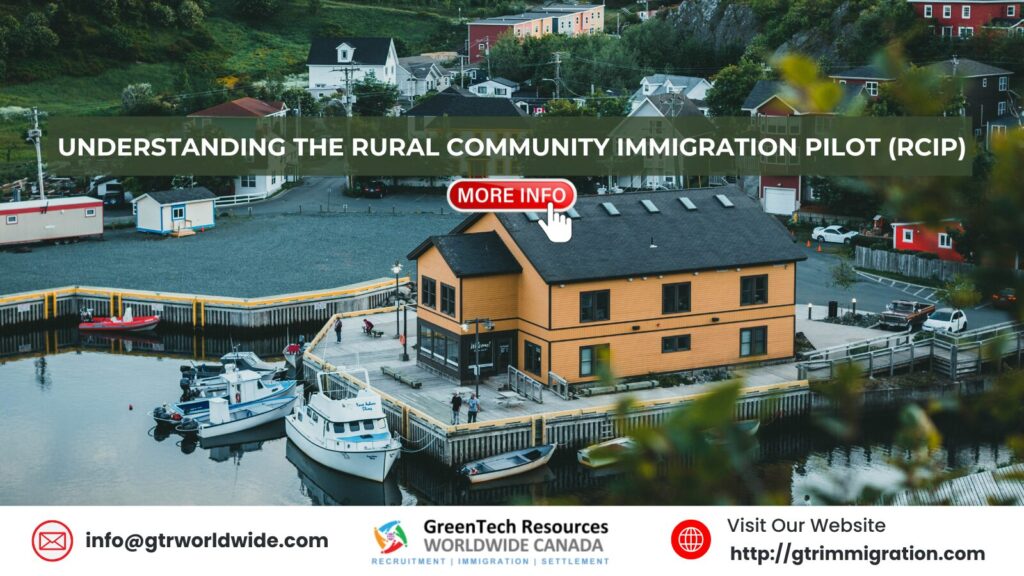The Rural Community Immigration Pilot (RCIP) is a strategic initiative designed to attract skilled immigrants to rural and smaller communities in Canada. Recognizing the unique challenges these communities face—such as population decline, labor shortages, and the outmigration of youth—the RCIP aims to support sustainable economic growth and demographic balance by encouraging newcomers to settle and build their lives outside major urban centers.
What Is the RCIP?
The RCIP is a community-driven immigration program that gives participating rural communities the ability to directly recommend candidates for permanent residence. This localized approach allows communities to identify specific labor market needs and attract immigrants whose skills and experience align with local job opportunities.
The pilot is modeled after the success of similar programs such as the Rural and Northern Immigration Pilot (RNIP) and aligns with Canada’s broader immigration goals.
Key Features of the RCIP
Community-Driven Process: Local employers and community organizations are actively involved in identifying labor needs and supporting the integration of newcomers.
Permanent Residency Pathway: Successful candidates receive a community recommendation, enabling them to apply for Canadian permanent residency through Immigration, Refugees and Citizenship Canada (IRCC).
Tailored Support Services: Approved applicants can access various settlement services to ease their transition into Canadian life. These services include assistance with finding employment, language training, enrolling children in school, and connecting with community resources.
Who Is Eligible?
To qualify for the RCIP, applicants must:
- – Have a valid, full-time, non-seasonal job offer from a designated employer in a participating community.
- – Possess at least one year (1,560 hours) of related work experience in the past three years.
- – Meet language proficiency requirements based on the National Occupational Classification (NOC) TEER category of the job offer.
- – Hold a Canadian secondary school diploma or an equivalent foreign credential.
- – Demonstrate sufficient funds to support themselves and their family, unless already working in Canada under a valid work permit.
- – Intend to reside in the community offering the job.
- – Obtain a community recommendation from the local economic development organization .
International graduates from public post-secondary institutions in the participating communities may be exempt from the work experience requirement if they meet specific criteria .
Benefits for Communities and Immigrants
For communities, the RCIP helps fill labor shortages in key sectors such as healthcare, agriculture, transportation, and hospitality. It also brings cultural diversity and new perspectives to regions that may otherwise struggle to maintain population growth.
For immigrants, the program offers a pathway to permanent residency in a supportive, tight-knit environment with strong community ties and affordable living. It’s an excellent opportunity for individuals and families looking to escape the high costs and congestion of major urban centers.
Participating Communities
Fourteen communities across Canada have been selected for the RCIP:
British Columbia: Peace Liard, West Kootenay, North Okanagan Shuswap
Alberta: Claresholm
Saskatchewan: Moose Jaw
Manitoba: Steinbach, Altona/Rhineland, Brandon
Ontario: North Bay, Sudbury, Timmins, Sault Ste. Marie, Thunder Bay
Nova Scotia: Pictou County
Each community collaborates with local economic development organizations to identify labor gaps, designate employers, and recommend candidates for permanent residence .
Application Process
Secure a Job Offer: Obtain a job offer from a designated employer in one of the participating communities.
Community Recommendation: The employer submits your application for community recommendation.
Apply for Permanent Residence: Upon receiving the recommendation, apply online through the Permanent Residence (PR) Portal.
Pay Fees: Application fees start from $1,525, excluding additional costs for biometrics, medical exams, and police certificates.
Submit Supporting Documents: Provide all necessary documents, including proof of funds, language test results, educational credentials, and police certificates



